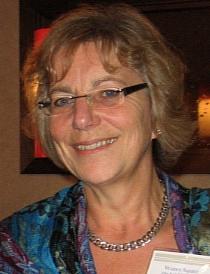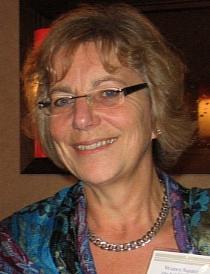The Plot Thickens: Shaken Baby Syndrome on the BBC

Back-Door Tactics Show Through
March 16, 2012, BBC One
Tensions have been mounting among the pathologists on the medico-legal drama Silent Witness, and now the doctors are finally speaking frankly. No, the head of the lab assures his young colleague, there is no conspiracy against Dr. Helen Karamides, the prominent pediatric neuropathologist whose maverick views on shaken baby syndrome have made her a lightning rod for criticism. He is double-checking Karamides’s work not because of a political witch hunt, he explains, but because the pathologist has been accused of conducting her research with illegally acquired brain tissues.
To anyone familiar with the career of pediatric neuropathologist Dr. Waney Squier, the parallels were obvious: Like the Karamides character, Squier has testified for the defense in infant-shaking cases, in the face of harsh criticism from her peers and even from the bench—as in the courtroom scene in the opening episode of the two-part show, titled “Paradise Lost.”
Unlike Karamides, however, Squier has published her infant-brain research in the peer-reviewed literature, and she was quickly cleared when accused of violating the human-tissue laws.
The irony is that the conclusion of “Paradise Lost” actually adds to the evidence for a conspiracy of sorts against doctors who question the prosecution model of shaken baby syndrome: By the end of the wrap-up segment, the Karamides character has videotaped her own suicide, confessing that she had conducted her research on illegally harvested baby brains. Autopsy reveals that she was an alcoholic. The packet that I’d hoped would reveal the results of her research contains only extensive interviews with a serial killer, who seems to have turned himself into a psychopath by head-banging as a lonely, unloved child.

Squier declines to talk about the situation, saying only that she trusts the BBC will do the right thing. Her complaint was leaked to the magazine Private Eye,however, which claimed to be quoting from her letter to the two agencies:
“While the storyline portrayed my unique professional circumstances in some detail, it deviates from the truth with respect to an accusation of retaining baby brains for research without permission. Such action would be gross professional miconduct and a criminal offence.”
Squier’s complaint allegedly described the character’s suicide as “disturbing to me and my friends” and “extremely painful to my daughters and my close family.”
The coverage in Private Eye, which doesn’t seem to be posted publicly, also included this observation about the BBC’s embarrassment:
One of the many factors that make the Beeb’s position extremely dicey is that none of the dirt previously directed at Squier by her enemies has stuck, thrown as it was by parties with an obvious axe to grind.
Squier was one of the doctors deeply involved in the response to the Alder Hey organ retention scandal in Liverpool 12 years ago which, ironically, led to the Human Tissue Act three years later and the setting up of the HTA to police it. She now believes she has been depicted as in the mould of Professor Dick Van Velzen, the rogue pathologist at the centre of the Alder Hey scandal.
One of the other factors “that make the beeb’s position extremely dicey” is that Squier had received a call from Silent Witness about a year before the “Paradise Lost” show aired, in which she learned they were doing a program on shaken baby syndrome.
The London Evening Standard published this piece on the complaint, seemingly picked up from Private Eye.
What fascinates me about this story is that the BBC faux pas illustrates the kind of “back door” campaign that attorney Heather Kirkwood alerted me to two years ago, between sessions at the Eleventh International Conference on Shaken Baby Syndrome/Abusive Head Trauma, in Atlanta, Georgia.
I happened to catch Kirkwood not long after she’d attended a talk by Detective Inspector Colin Welsh from New Scotland Yard, titled “A National Co-ordinated Approach to Cases of Non-Accidental Head Trauma in the UK.” Kirkwood knew complaints had been filed with the General Medical Council (GMC) against Dr. Squier and a colleague of hers, histopathologist Dr. Marta Cohen, based on their courtroom testimony in shaken baby cases. She had just learned why.
“I don’t believe this,” she said, her incredulity tinged with indignation. “Their entire coordinated plan was to keep Dr. Squier and Dr. Cohen off the stand.”
According to Kirkwood’s transcribed notes, D.I. Welsh’s talk had detailed a strategy for improving the conviction rate in shaking cases by neutralizing the “handful of experts” who testify for the defense and whose role, according to Welsh, is to confuse the jury with the complexity of the science and provide possible alternative causes without explaining why the child died.
In a witnessed statement drafted after the conference, Kirkwood wrote that she that she realized several minutes into the presentation that “the ‘national coordinated approach’ referenced in the title of the talk was essentially a description of the joint efforts of New Scotland Yard, prosecution counsel, and prosecution medical experts to prevent Dr. Squier and Dr. Cohen from testifying for the defense on their findings in specific cases as well as on their published and peer-reviewed research.”
Welsh’s talk also addressed the problem of “judicial inexperience,” Kirkwood’s notes report. His advice for influencing judges who’ve been listening to SBS critics was not to address the debate in argument, but to work through the “back door,” reaching judges informally outside of court and explaining the prosecution point of view without the opposition present.
Squier and Cohen have so far weathered the complaints lodged against them, but the campaign is having its effect. Last year Squier told the Canadian Broadcasting Company that attacks motivated by her position on shaken baby syndrome threaten her ability to work, and she hesitates to continue testifying.
Presumably the editors at “Silent Witness” consulted one or more child-abuse experts to advise them on their story about shaken baby syndrome. I hope they take a second look at the sources who not only approved such a dismissive treatment of a real problem—the overdagnosis of infant shaking—but also planted a personal attack on one of the rare physicians willing to rely on scientific evidence instead of popular opinion.
If you're not familiar with the medical and legal debates surrounding shaken baby syndrome, please see my web site at http://onsbs.com/

